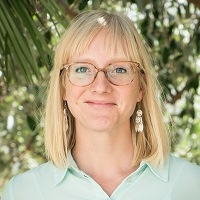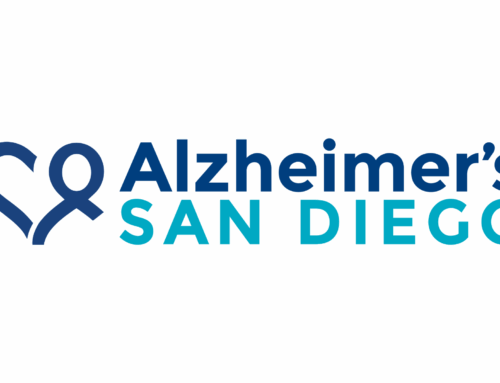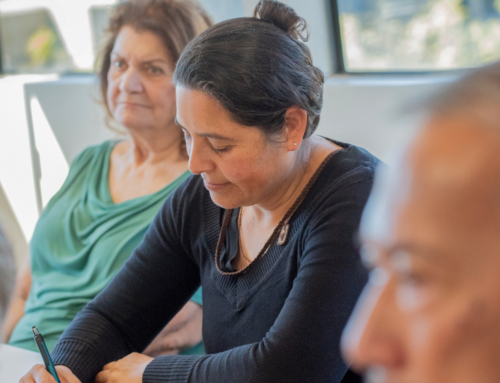Asking for help is not fun, easy or something that comes naturally to most of us. On a daily basis, I speak with people who are reaching out to Alzheimer’s San Diego for the first time. What I often hear during those initial calls or meetings is:
- “I’m sorry to bother you, my situation isn’t that bad.”
- “It was really hard to call you today.”
- Or: “I wish I would have called months ago.”
All of these statements touch my heart, as I realize the courage it takes for someone to call and just how uncomfortable it can be to ask for help. Hearing some sense of relief on the other line is what propels me forward each day. The meaning of my work lies in the connections I make with people when they are in a time of need, in knowing they feel heard and supported.
“I don’t even know where to begin,” is how one woman started a recent call. She had been caring for her husband in their home for some time, and felt completely overwhelmed. As a mother, she was accustomed to caring for others and felt she should be able to handle her husband’s care, even as his dementia progressed and he needed support from her all day, every day. She shared that she felt alone, but that, “the idea of asking for help made me feel so guilty that I kept pushing through.”
I’m not sure what finally motivated her to call, but she admitted she had not imagined there would be someone else out there who actually understood what she and her husband were facing. While we didn’t solve all of her challenges in one phone call, we were able to discuss available resources and support. The overwhelming cloud of concerns she began with became something more manageable, knowing she no longer had to continue this journey on her own. As we said goodbye, she shared that she felt hopeful for the first time in many months.
NEED SUPPORT? Talk to one of our Dementia Experts
Alzheimer’s disease and other types of dementia affect each person and their care partners differently, so it’s easy to compare the reality you’re facing to someone else’s and believe you should be able to handle it on your own. Just the day-to-day of living with the disease can become so consuming that stepping back to realize you need support is not a priority. While I see incredible strength and resilience in each person I speak with, we often connect only after someone has reached a point of exhaustion trying to manage the disease alone.
That is not how it has be.
While there’s still no cure for Alzheimer’s, we do have other vital tools to offer – support, information and resources. There are people who understand exactly what you’re going through as a care partner. You can find true empathy among our staff, in our Support & Discussion Groups and more.
If you are reading this now and have been waiting for the “right” time to reach out, I encourage you to give us a call. That first call is often the hardest, but I hope you will find it worthwhile. There is no question too big or small.
No matter what your situation might be, we are here for you. When you speak with me or another social worker on our team, I hope you will feel welcomed, understood and supported.
Carly and our team of Dementia Experts are here to help! Give us a call at 858.492.4400 for free support.






